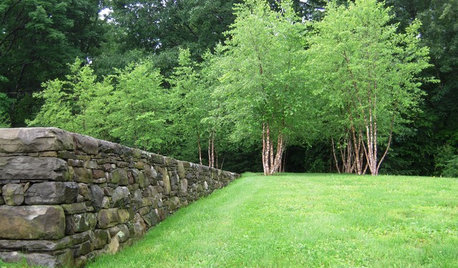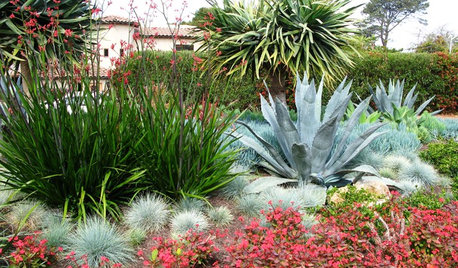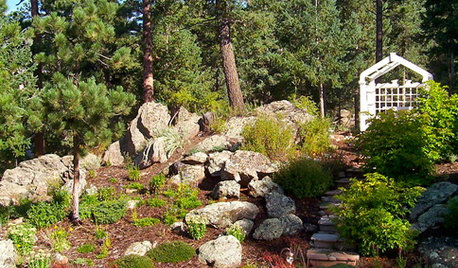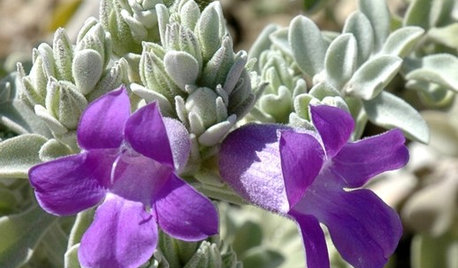Concerned about my soil
freshfruit
14 years ago
Related Stories

GARDENING GUIDESHow to Pick a Mulch — and Why Your Soil Wants It
There's more to topdressing than shredded wood. Learn about mulch types, costs and design considerations here
Full Story
LANDSCAPE DESIGNFlood-Tolerant Native Trees for Soggy Soil
Swampy sites, floodplains, even standing water ... if you've got a soggy landscape, these trees are for you
Full Story
GARDENING GUIDESGardening Solutions for Dry, Sandy Soils
Has your desert or beachy site withered your gardening creativity? Try these ideas for a beautiful, easy-care landscape
Full Story
GARDENING GUIDESNew Ways to Think About All That Mulch in the Garden
Before you go making a mountain out of a mulch hill, learn the facts about what your plants and soil really want
Full Story
GARDENING GUIDESThe Poop Scoop: Enrich Your Soil With Good Old Manure
Get over the ick factor already — this natural super-ingredient for soil has so many benefits, you'll wonder why you ever went chemical
Full Story
GARDENING GUIDESHave Acidic Soil in Your Yard? Learn to Love Gardening Anyway
Look to acid-loving plants, like conifers and rhododendrons, to help your low-pH garden thrive
Full Story
GARDENING GUIDESGreat Design Plant: Try Blue Bells for Blooms in Dry Soil
This shrub’s violet-blue flowers and silvery foliage brighten low-water gardens all year long
Full Story
GARDENING GUIDESGardening Solutions for Heavy Clay Soils
What’s a gardener to do with soil that’s easily compacted and has poor drainage? Find out here
Full Story
GARDENING GUIDESGrow a Beautiful Garden in Alkaline Soil
Got alkaline soil? Learn how to manage it and the many beautiful plants that will thrive in this ‘sweet’ soil
Full Story
FARM YOUR YARDHow to Get Good Soil for Your Edible Garden
The nutrients in your soil feed the plants that feed you. Here are tips on getting it right — just in time for planting season
Full StoryMore Discussions






Dan _Staley (5b Sunset 2B AHS 7)
freshfruitOriginal Author
Related Professionals
Mount Wilson Landscape Architects & Landscape Designers · Norwood Landscape Contractors · Tempe Landscape Contractors · Berkeley Heights Landscape Contractors · Bowie Landscape Contractors · Clearlake Landscape Contractors · Holland Landscape Contractors · Las Vegas Landscape Contractors · Royal Oak Landscape Contractors · Tustin Landscape Contractors · Boone Decks, Patios & Outdoor Enclosures · King of Prussia Decks, Patios & Outdoor Enclosures · Medford Decks, Patios & Outdoor Enclosures · New Albany Decks, Patios & Outdoor Enclosures · Philadelphia Decks, Patios & Outdoor EnclosuresDan _Staley (5b Sunset 2B AHS 7)
gardengal48 (PNW Z8/9)
ericwi
zeuspaul
Kimmsr
Dan _Staley (5b Sunset 2B AHS 7)
docgipe
vegvitki
scarletdaisies